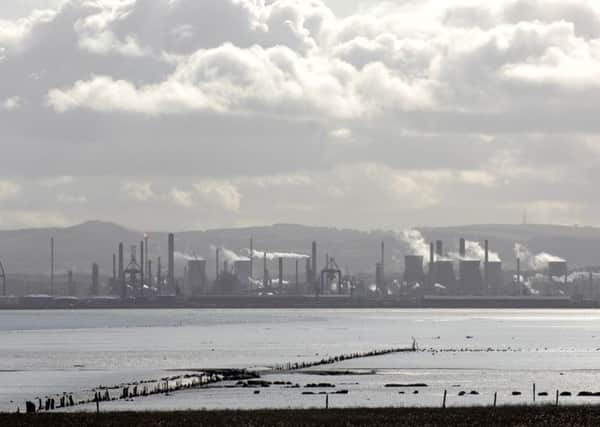Pollution can be rough on your skin


And, according to a new report from Friends of the Earth Scotland, Falkirk’s West Bridge Street is one of Scotland’s seven most polluted streets, with the town centre, Grangemouth and Banknock classed as “unsafe”.
So it’s a good time to see what measures you can take at home to protect your skin.As skin is your outermost barrier, it is one of the first and largest targets for air pollution.
So, what exactly is air pollution?
Advertisement
Hide AdAdvertisement
Hide AdAir pollutants include the polycyclic aromatic hydrocarbons (PAH), volatile organic compounds (VOC), oxides, particulate matter, ozone, and cigarette smoke.
Prolonged and repetitive exposure to these agents can have negative effects on the skin. Scientific studies in both animals and humans have shown that these components of air pollution can contribute to premature skin ageing – wrinkling and pigmentation spots – and worsening of inflammatory skin diseases such as eczema, psoriasis and acne.
One major mechanism is via the generation of reactive oxygen species that can damage DNA in skin cells.
So short of leaving the city and moving into the countryside, what can you do to limit the damage?
Advertisement
Hide AdAdvertisement
Hide AdBritish Skin Foundation experts recommend taking the following five simple, but effective measures:
1. Cleanse your skin every night to remove dirt and environmental toxins from the skin surface;
2. Exfoliate once weekly – less if you have dry or sensitive skin – to give your skin a deeper clean. This will also improve the penetration of any products that are later applied to the skin;
3. Use an antioxidant serum – antioxidants such as vitamin C and resveratrol have the ability to neutralize damage caused by reactive oxygen species. They certainly have a role in your anti-ageing armoury;
Advertisement
Hide AdAdvertisement
Hide Ad4. Use a regular sunscreen – SPF 15 or above – don’t forget your skin also needs UV protection to help reduce risk of skin cancers and signs of premature ageing;
5. Moisturise daily, particularly if you have a tendency to dry, inflammatory skin conditions like eczema or psoriasis. This will keep your skin hydrated and help to maintain the integrity of the barrier function of your skin.
It is worth thinking about taking extra precautionary measures to protect against noxious chemicals we are exposed to on a daily basis.
We may not be able to control the environmental factors that lead to skin inflammation and ageing but it is in our hands to try and limit these.
Visit www.britishskinfoundation.org.uk for more.